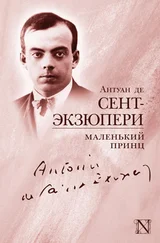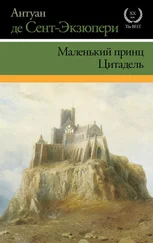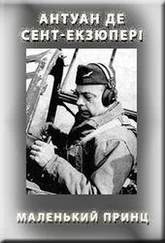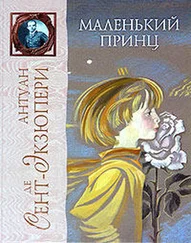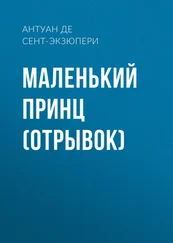| But he was in Turkish costume, and so nobody would believe what he said. |
Но никто ему не поверил, а все потому, что он был одет по-турецки. |
| Grown-ups are like that... |
Уж такой народ эти взрослые! |
| Fortunately, however, for the reputation of Asteroid B-612, a Turkish dictator made a law that his subjects, under pain of death, should change to European costume. |
К счастью для репутации астероида Б-612, правитель Турции велел своим подданным под страхом смерти носить европейское платье. |
| So in 1920 the astronomer gave his demonstration all over again, dressed with impressive style and elegance. |
В 1920 году тот астроном снова доложил о своем открытии. |
| And this time everybody accepted his report. |
На этот раз он был одет по последней моде - и все с ним согласились. |
| Habille a l Europeenne.jpg |
Habille a l Europeenne.jpg |
| If I have told you these details about the asteroid, and made a note of its number for you, it is on account of the grown-ups and their ways. |
Я вам рассказал так подробно об астероиде Б-612 и даже сообщил его номер только из-за взрослых. Взрослые очень любят цифры. |
| When you tell them that you have made a new friend, they never ask you any questions about essential matters. |
Когда рассказываешь им, что у тебя появился новый друг, они никогда не спросят о самом главном. |
| They never say to you, |
Никогда они не скажут: |
| "What does his voice sound like? |
"А какой у него голос? |
| What games does he love best? |
В какие игры он любит играть? |
| Does he collect butterflies?" |
Ловит ли он бабочек?" |
| Instead, they demand: |
Они спрашивают: |
| "How old is he? |
"Сколько ему лет? |
| How many brothers has he? |
Сколько у него братьев? |
| How much does he weigh? |
Сколько он весит? |
| How much money does his father make?" |
Сколько зарабатывает его отец?" |
| Only from these figures do they think they have learned anything about him. |
И после этого воображают, что узнали человека. |
| If you were to say to the grown-ups: |
Когда говоришь взрослым: |
| "I saw a beautiful house made of rosy brick, with geraniums in the windows and doves on the roof," they would not be able to get any idea of that house at all. |
"Я видел красивый дом из розового кирпича, в окнах у него герань, а на крыше голуби", - они никак не могут представить себе этот дом. |
| You would have to say to them: |
Им надо сказать: |
| "I saw a house that cost $20,000." Then they would exclaim: |
"Я видел дом за сто тысяч франков", - и тогда они восклицают: |
| "Oh, what a pretty house that is!" |
"Какая красота!" |
| Just so, you might say to them: |
Точно так же, если им сказать: |
| "The proof that the little prince existed is that he was charming, that he laughed, and that he was looking for a sheep. |
"Вот доказательства, что Маленький принц на самом деле существовал - он был очень, очень славный, он смеялся, и ему хотелось иметь барашка. |
| If anybody wants a sheep, that is a proof that he exists." And what good would it do to tell them that? They would shrug their shoulders, and treat you like a child. |
А кто хочет барашка, тот уж конечно существует", - если сказать так, они только пожмут плечами и посмотрят на тебя как на несмышленого младенца. |
| But if you said to them: |
Но если сказать им: |
| "The planet he came from is Asteroid B-612," then they would be convinced, and leave you in peace from their questions. |
"Он прилетел с планеты, которая называется астероид Б-612", - это их убедит, и они не станут докучать вам расспросами. |
| They are like that. |
Уж такой народ эти взрослые. |
| One must not hold it against them. |
Не стоит на них сердиться. |
| Children should always show great forbearance toward grown-up people. |
Дети должны быть очень снисходительны к взрослым. |
| But certainly, for us who understand life, figures are a matter of indifference. |
Но мы, те, кто понимает, что такое жизнь, - мы, конечно, смеемся над номерами и цифрами! |
| I should have liked to begin this story in the fashion of the fairy-tales. |
Я охотно начал бы эту повесть как волшебную сказку. |
| I should have like to say: |
Я хотел бы начать так: |
| "Once upon a time there was a little prince who lived on a planet that was scarcely any bigger than himself, and who had need of a sheep..." |
"Жил да был Маленький принц. Он жил на планете, которая была чуть побольше его самого, и ему очень не хватало друга..." |
| To those who understand life, that would have given a much greater air of truth to my story. |
Те, кто понимает, что такое жизнь, сразу увидели бы, что это гораздо больше похоже на правду. |
| For I do not want any one to read my book carelessly. |
Ибо я совсем не хочу, чтобы мою книжку читали просто ради забавы. |
| I have suffered too much grief in setting down these memories. |
Сердце мое больно сжимается, когда я вспоминаю моего маленького друга, и нелегко мне о нем говорить. |
| Six years have already passed since my friend went away from me, with his sheep. |
Вот уже шесть лет, как мой друг вместе с барашком меня покинул. |
| If I try to describe him here, it is to make sure that I shall not forget him. |
И я пытаюсь рассказать о нем для того, чтобы его не забыть. |
| To forget a friend is sad. |
Это очень печально, когда забывают друзей. |
| Not every one has had a friend. |
Не у всякого был друг. |
| And if I forget him, I may become like the grown-ups who are no longer interested in anything but figures... |
И я боюсь стать таким, как взрослые, которым ничто не интересно, кроме цифр. |
| It is for that purpose, again, that I have bought a box of paints and some pencils. |
Еще и потому я купил ящик с красками и цветные карандаши. |

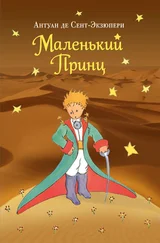
![Луиза Олкотт - Маленькие женщины [английский и русский параллельные тексты]](/books/35189/luiza-olkott-malenkie-zhenchiny-anglijskij-i-russk-thumb.webp)
